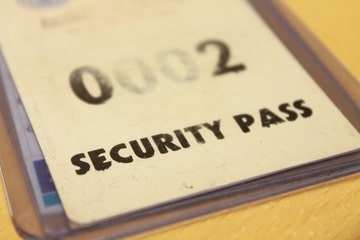How and Why to Work with a Genealogist
January 5, 2024
Did you know that Larry David is actually related to Bernie Sanders?
If you didn’t, don’t feel bad—they didn’t know it either!
In fact, the two of them wouldn’t even know about the connection if it hadn’t been for the help of TV show’s Finding Your Roots team of professional genealogists.
If you’ve got an itch to look into your own family’s history, unearthing your roots is an exciting and fascinating project! However, it’s important to recognize that it’s also a complex and challenging endeavor.
So, while you may be tempted to tackle this project on your own, it’s in your best interest to partner with someone with professional genealogy know-how and expertise.
Shall we elaborate?
Finding a High-Quality Professional Genealogist
Listen, with the internet at everyone’s fingertips, we totally get it if you’re thinking: “Right, so I’ll just go online and research my family history by myself. Piece of cake!”

But as we hinted at above, genealogy is not synonymous with straightforward simplicity.
And since becoming a genealogist is more nuanced than, say, becoming a doctor, there are a lot of people labeling themselves professional genealogists.
So how do you ensure you’re partnering with a solid genealogist?
Check for experience.
A simple internet search will turn up countless genealogists who would be happy to help you research your family history. That’s why it’s essential to take the time to ask about their experience.
We don’t mean just skimming their resume (although we highly
recommend doing this, as well), we mean having a full conversation
with the genealogist about their previous projects and approach.
Below are some questions we suggest asking:
1. Can you describe your background and how you got into
genealogy?
- Do they have a genuine interest in genealogy?
- Do they have general knowledge of history, geography, and cultural affairs?
- Are they aware of global situations that may impact travel for research?
- Are they aware of how country borders have shifted throughout history?
2. Can you describe your process for a genealogy project?
- How do they approach a new project?
- Do they have a general process for researching a family’s history?
- How do they go about cross-checking and fact-checking information they find?
3. What do you do if you can’t verify any of your research?
- Do they have a process in place?
- Do they hold onto the information?
- Do they throw away the information?
4. Can you briefly describe some of your previous projects?
- Can you confirm that they actually utilize their research process?
- How do they handle research challenges?
Check for integrity.
Although hard skills in genealogy are crucial for successfully researching your family’s history, working with a top-tier genealogy guru will only get you so far if they also lack integrity. Thus, soft skills play an equally critical role in the research process.
This might seem a little silly, but uncovering your family history is no small feat—nor is it a fast one. Partnering with a genealogist is exactly that: a partnership. Accordingly, it’s vital to work with a genealogist you can trust.
For example, one of The Writers For Hire’s professional writers and genealogists Jennifer Rizzo shared an anecdote about a genealogist who was unable to find the information their client was looking for, but was too afraid to be honest about it. A high-quality professional genealogist would be forthright with their client about this research roadblock.
However, the client was completely unaware until they brought all of their findings to a different genealogist. It was this second genealogist who had to break it to the client that all of the information gathered with the previous genealogist was false.
To help you get a feel for a professional genealogist’s character and soft skills, we suggest asking the following questions:
Can you describe your experience working with your clients?
- How do they engage with and treat their clients?
- How do they communicate with you and share information?
- What are their boundaries?
What do you do if you can’t verify any of your research?
- Will they share the information with you anyway?
- Will they include a disclaimer that it hasn’t been verified?
Can you share an experience when you weren’t able to verify your research?
- Were they honest and forthcoming about it?
With these tips, you’re sure to find a strong professional genealogist candidate to help you research your family history.
The Benefits of Working with a Professional Genealogist
Picture this: You’re about to enter a building that has one of those heavy and awkward revolving doors you have to push open.
This is what researching your family history by yourself is like.
You can do it, but it’s kind of a hassle and you might push or go in the wrong direction.
Now picture this: You’re about to enter a building that has a doorman ready to open and close the door for you.
This is what working with a professional genealogist on your family history research is like. It’s easier, there’s less heavy lifting, and you’re guided in the right direction. Plus, you usually get a smile!
In other words, partnering with a professional genealogist opens the door to countless benefits and, ultimately, success.
Experience and Expertise
Above all else, the reason to hire a genealogist to help you with your family research is their professional expertise and experience in the field!
Have you ever tried sorting through old records and historical documents before? For many of us, it can feel like trying to crack a code!
But not for professional genealogists. Not only do they understand the jargon, but their expertise also bolsters their understanding of the complex nuances of these different documents.

Furthermore, their capabilities in reading old, hand-written texts present an invaluable advantage—just imagine trying to read a decades-old doctor’s note! Yikes!
As a result, genealogists know how to find, recognize, and utilize clues within records and documents that will help propel their research forward. Similarly, if a genealogist encounters a challenge while researching, their skills and field experience empower them to tackle it head-on.
And that’s just the tip of the family-tree-shaped iceberg of benefits.
They have a process.
As we alluded to above, a high-quality genealogist will have a process that guides them through their research of your family’s history. While a layperson might hem and haw over where to start, a professional genealogist will help you avoid dawdling and jump right in.
Additionally, professional genealogists also have a set of tools and practices that they’re familiar with and are confident using throughout a project. These tools and practices might include:
- Notetaking systems
- Organizational filing systems
- Document naming systems
- Photo organization systems
- PDF scanners
- Camera
- Voice recorder
- Project management apps
- Communication apps
But perhaps most important, a high-quality professional genealogist will also have a process for verifying the information they find. And, as we hinted at above, if they’re unable to confirm any part of their research, a strong genealogist will have a system for sharing that information with you, as well.
They have knowledge of resources available for research.
If you were to tackle your family history research on your own, where would you go to look for information? A website like Ancestry.com?
And where do you think a genealogist would go?
The thing is, a professional genealogist might turn to any number of places to start their work.
This is because not only do they have an expansive knowledge of what resources and tools are available to assist their research, but they also possess the know-how to properly utilize them.
For instance, professional genealogists might find valuable information about your family’s history by looking into:
- Federal census records
- Ship records
- State records
- Military records
- Birth, marriage, and death records
- Medical records
- Property and tax records
- Newspaper archives
- Church records
- School records
- Library archives
- Historical society records
- Court records
- Local history records
Now, this isn’t to say that Ancestry.com isn’t in a professional genealogist’s toolbelt, too. It is—and so are other online databases! In fact, that’s another great benefit of partnering with a genealogist to research your family history: They have memberships to all of those paid services.
But as you can see, there are a lot of different resources that might provide you with valuable clues and information about your family’s history. It’s actually tracking down and accessing the resources that’s more complicated.
For one thing, it’s possible that your family’s information is geographically spread all over the place. (Of course, if you’re not interested in traveling, your professional genealogist can do it for you!)
Yet, even if a lot of your family history research can be done on a relatively local level, it doesn’t mean you can automatically access it just because it’s nearby. To elaborate, Rizzo explained that while some facilities allow you to walk right in, others involve prerequisite steps.

For example, some archives simply require visitors to make an appointment. Alternatively, some libraries require visitors to sign up for a membership prior to using their resources.
Of course, some organizations implement much stricter protocols.
To gain access to one facility’s materials, Rizzo shared how she first had to take a class and pass a quiz to demonstrate her ability to properly handle the materials in their archives.
Only after passing the quiz could Rizzo set up a special reservation to conduct her research.
Custom Levels of Support
The great thing about working with a professional genealogist is that they’re there to support you. This means that you have control over the project and can accordingly choose just how involved you want to be with the work—or don’t want to be.
Meaning, if you want someone to take the wheel and do all of your family history research for you, a professional genealogist can drive you where you want to go!
Or, if you want to ride shotgun and witness the journey, a professional genealogist can get the door for you.
And if you want to take the wheel but need a copilot in the passenger seat giving you directions, a professional genealogist can help steer you in the right direction.
It’s really no secret that a professional genealogist is your greatest ally in researching your family’s history!






























